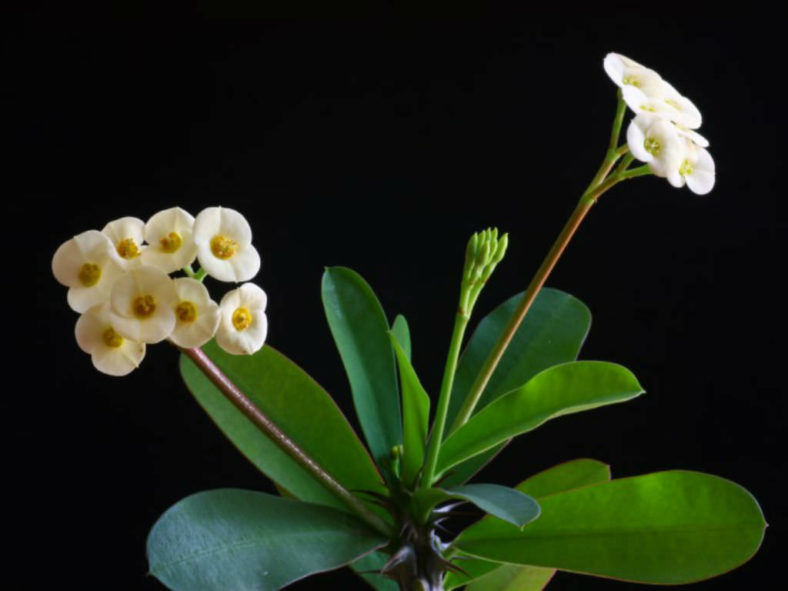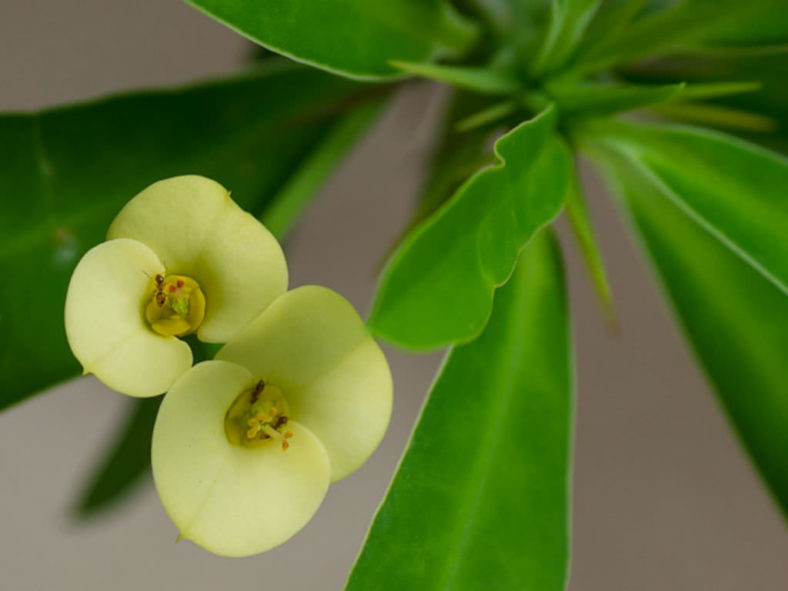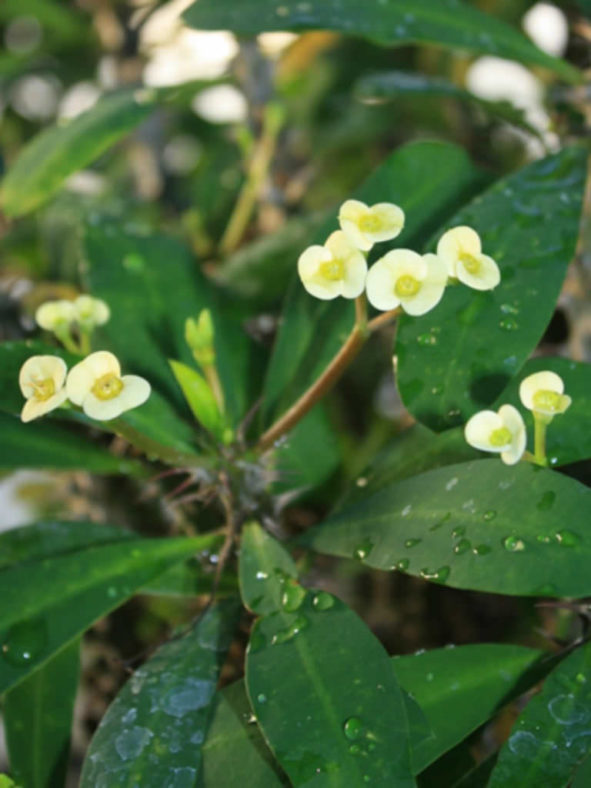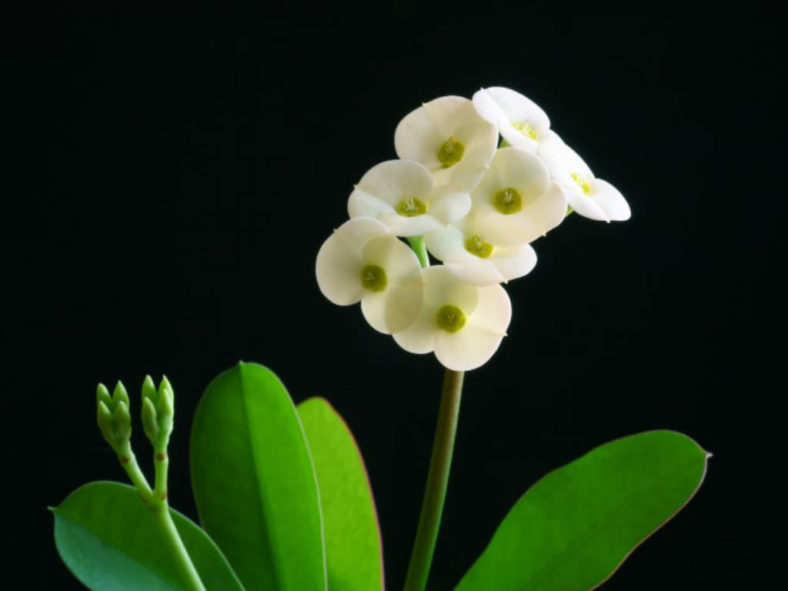Scientific Name
Euphorbia milii f. lutea Leandri
Accepted Scientific Name
Euphorbia milii Des Moul.
Common Name(s)
Yellow Crown of Thorns
Scientific Classification
Family: Euphorbiaceae
Subfamily: Euphorbioideae
Tribe: Euphorbieae
Subtribe: Euphorbiinae
Genus: Euphorbia
Etymology
The formal epithet "lutea" (pronounced "LOO-tee-uh") means "yellow" or "golden yellow" and refers to the color of the flowers of this form.
Origin
Euphorbia milii f. lutea is a yellow-flowered form of Euphorbia milii. It is not accepted as a separate form and is treated as a synonym of Euphorbia milii.
Description
Euphorbia milii f. lutea is a much-branched succulent shrub with woody, obscurely 3- to 5-angled, grayish-brown branches with numerous sharp, gray spines and green leaves clustered mainly at the branch tips. It grows up to 6 feet (1.8 m) tall. The leaves are obovate, measuring up to 2 inches (5 cm) long and 0.7 inches (1.8 cm) wide. The spines reach up to 1 inch (2.5 cm) in length.
The tiny flowers are yellow to greenish-yellow, enclosed within long-lasting, petal-like, variably yellow bracts. They appear all year round but primarily in spring and summer.

How to Grow and Care for Euphorbia milii f. lutea
Hardiness: USDA hardiness zones 10a to 11b: from 30°F (-1.1°C) to 50°F (10°C).
Crown of Thorns does well in even the poorest soil, provided it is well-drained and does not remain moist. It prefers full sun but tolerates some shade for part of the day. A tough plant, Crown of Thorns, is a good choice for a seaside location with salt spray or soil with high salt content. If you grow your Crown of Thorns as a houseplant, place it in an uncovered window to ensure it receives maximum sunlight. Although drought-tolerant, you can encourage your plant to retain its leaves and bloom more frequently by watering it regularly and giving it occasional fertilizer. Check fertilizer labels and choose a basic, balanced formula without added micro-nutrients since the plant is sensitive to boron.
This plant benefits from some light pruning as it matures. Remove some older, leafless branches at the end of each growing season to stimulate new growth in spring. Clear away dead leaves and any dropped or matted flowers to allow the soil to dry thoroughly and reduce the likelihood of fungal disease. If you notice any brown stems or leaves on your plant, cut them back to healthy tissue to prevent rot from spreading. If you grow your plant indoors and wish to move it outside in warmer weather, keep it in partial shade for a week or two until it acclimates to bright sunlight.
Learn more at How to Grow and Care for Euphorbia.
Links
- Back to genus Euphorbia
- Succupedia: Browse succulents by Scientific Name, Common Name, Genus, Family, USDA Hardiness Zone, Origin, or cacti by Genus
Photo Gallery
Click on a photo to see a larger version.


